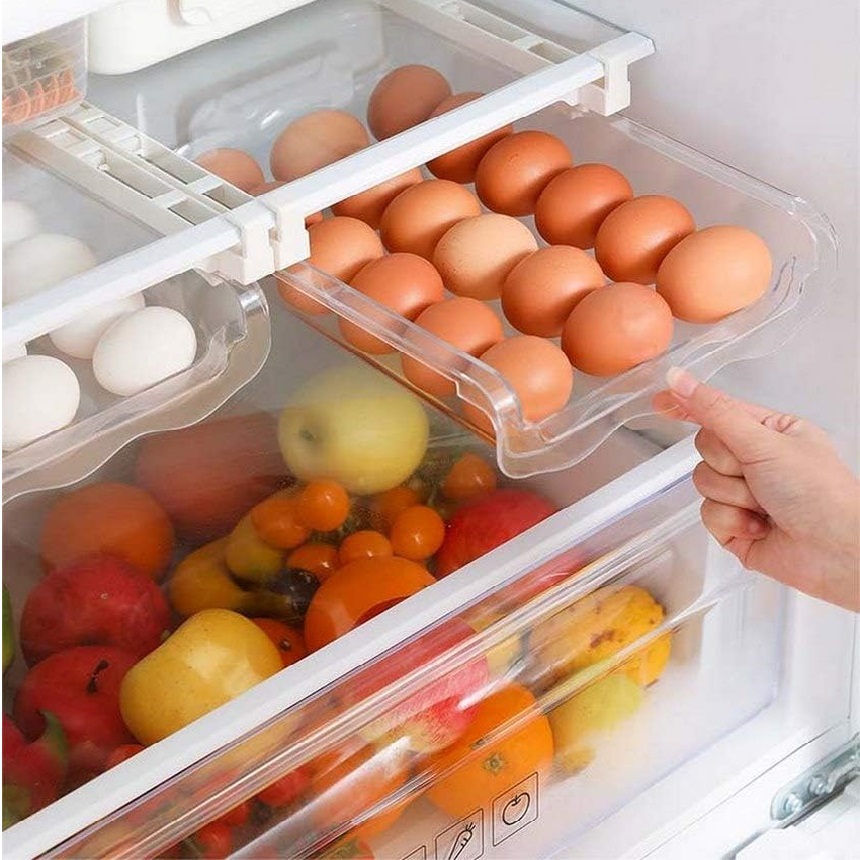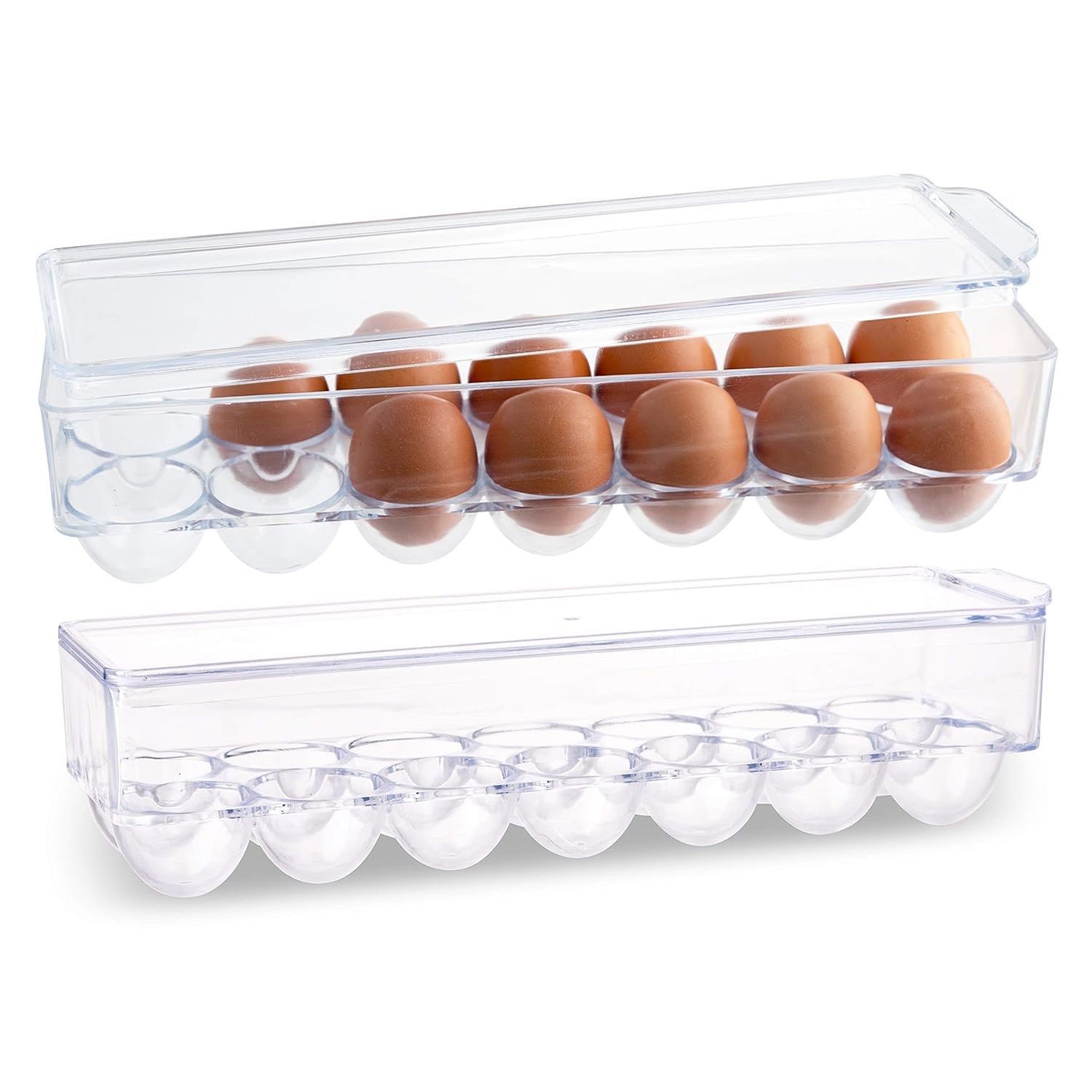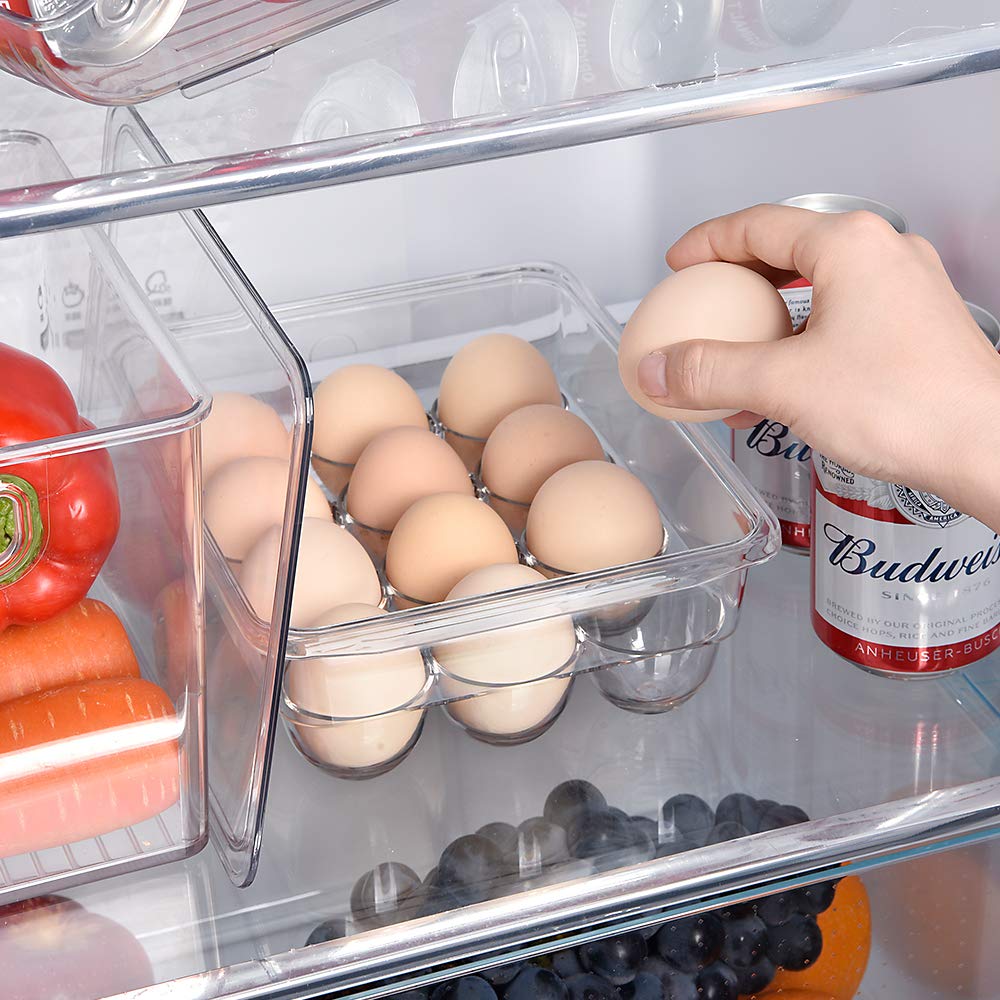Eggs are a staple in many households around the world. Their versatility allows them to be used in countless recipes, ranging from breakfast to desserts. However, one of the most common questions that arise when it comes to egg storage is, “How long can eggs be kept in the refrigerator?” While the answer may seem straightforward, several factors influence the shelf life of eggs. This article will delve deep into the storage, safety, and quality of eggs in your refrigerator, ensuring that you have all the information you need.
Understanding Egg Composition and Freshness
The Anatomy of an Egg
Before delving into storage practices, it’s essential to understand the composition of an egg. An egg consists of several components: the shell, the egg white (albumen), and the yolk. Each component has distinct characteristics and plays a role in the egg’s freshness and safety.
- The Shell: The shell is porous, allowing air exchange. This property means that as eggs age, they can lose moisture and absorb odors from the refrigerator environment.
- The Egg White: The egg white is largely composed of water and proteins. It provides cushioning for the yolk and contains various vitamins and minerals.
- The Yolk: The yolk is the nutrient-dense part of the egg, providing fats, proteins, and essential vitamins.
Factors Influencing Freshness
A freshly laid egg has a firm egg white and a high, round yolk. Over time, the layers of the egg structure can change. Factors influencing egg freshness include:
- Storage Conditions: Temperature is a key factor. Refrigeration slows down the growth of bacteria but does not fully halt it.
- Age of the Egg: The longer eggs are kept, the more they age. As they age, the quality diminishes, leading to changes in texture and taste.
- Handling Practices: Eggs that have been washed or handled improperly may have a decreased shelf life due to potential contamination.
Recommended Storage Guidelines
How Long Can Eggs Be Kept in the Refrigerator?
Generally, eggs can be kept in the refrigerator for about 3 to 5 weeks after the purchase date, but they can sometimes last much longer under proper conditions. The “sell by” date on egg cartons is a good guideline; however, many eggs can remain fresh a few weeks beyond this date with proper storage.
Best Practices for Storing Eggs
To maximize the freshness of your eggs, consider the following storage techniques:
Keep Them in the Carton
The original carton protects eggs from odors and moisture loss. Storing them in the carton also helps prevent them from absorbing strong odors common in a refrigerator, such as onions or garlic.
Store in the Main Compartment
The temperature in the door of the refrigerator fluctuates due to frequent opening and closing. Keep eggs in the main compartment for a more consistent temperature.
Avoid Stacking
Prevent pressure on the eggs by avoiding stacking them with heavy items. Pressure can cause cracks that lead to contamination and spoilage.
Temperature Maintenance
Ensuring your refrigerator is set at the right temperature (ideally between 32°F and 40°F) is critical for keeping eggs fresh. This low temperature minimizes bacterial growth and helps preserve the quality of the eggs.
Determining Egg Freshness at Home
While the sell-by date provides a helpful guideline, you can perform a few tests at home to determine the freshness of your eggs:
The Float Test
- Fill a Bowl: Take a bowl of water and place your eggs in it.
- Observe: Fresh eggs will sink to the bottom and lay flat on their sides. If an egg stands vertically or floats, it’s best to discard it.
Crack Test
- Check the Appearance: After cracking the egg open, inspect the egg white and yolk. Fresh eggs will have a firm, gelatinous egg white and a round yolk. If the egg white is watery or the yolk is flat, the egg is old.
- Smell Test: If the egg has an off-putting or sulfur-like odor, it is no longer safe to eat.
The Science Behind Egg Expiration
Why Eggs Spoil Over Time
Eggs spoil due to the presence of bacteria, the natural breakdown of proteins, and moisture loss. Bacteria can enter through the porous shell, leading to foodborne illnesses if consumed.
The Role of the Egg’s Protective Coating
Freshly laid eggs have a natural protective coating called the bloom or cuticle, which helps seal the pores of the shell. This coating helps to keep bacteria out. Washing eggs can remove this protective layer, making them more susceptible to spoilage.
Understanding “Best Before” vs. “Sell By” Dates
- Best Before: This date indicates how long the eggs will maintain their best quality. Eggs can often be consumed beyond this date if they have been stored properly.
- Sell By: This date is a guideline for retailers and indicates when a product should be sold. It does not necessarily mean the product is unsafe after this date.
Cooking with Older Eggs
Safety Considerations
When it comes to cooking with older eggs, safety should be your top priority. While using eggs up to a week past their sell-by date is generally safe, reliance on the float or crack test is crucial.
Usage Tips for Older Eggs
- Use for Baking: Older eggs can often be used for baking applications like cakes or pancakes, where their texture will not be as noticeable.
- Hard-boiling: Older eggs are often easier to peel when boiled, making them ideal for hard-boiled egg recipes.
Health Benefits of Eggs
Despite the focus on freshness and storage, it’s noteworthy that eggs provide a wealth of nutrition:
Nutritional Profile
Eggs are an excellent source of protein, vitamins, and minerals. Key nutrients include:
- Protein: Eggs contain high-quality protein essential for building and repairing tissues.
- Vitamins: Eggs are rich in various B vitamins, including B12 and riboflavin, which are crucial for energy metabolism.
- Minerals: Eggs provide important minerals such as phosphorus and selenium.
Heart Health
Research has shown that moderate egg consumption can be part of a heart-healthy diet. Contrary to past concerns about cholesterol, recent studies suggest that eggs may not negatively affect heart health in most people.
Eye Health
Eggs contain lutein and zeaxanthin, antioxidants that are beneficial for eye health. Consuming eggs can help reduce the risk of cataracts and age-related macular degeneration.
 When to Discard Eggs
When to Discard Eggs
Knowing when to discard eggs is just as crucial as knowing when they are fresh. Discard eggs that have:
- An Off-Smell: If the egg emits a foul odor when cracked open, it’s best to throw it away.
- Discoloration: Unusual colors or mold on the shell indicate spoilage.
- Unusual Texture: Watery egg whites or a runny yolk when broken can signify age.
Cooking Eggs Safely
Proper Cooking Temperatures
To ensure that eggs are safe to eat, they should be cooked to an internal temperature of 160°F (71°C). This will kill any harmful bacteria that may be present.
Scrambling and Frying
For scrambled eggs, cook them over medium heat while stirring constantly until they are just set. For fried eggs, cook them until the whites are completely firm, and the yolks begin to thicken.
Conclusion
In summary, eggs can be safely kept in the refrigerator for about 3 to 5 weeks after purchase, but with careful attention to their storage and handling, they may remain good for even longer. Understanding how long eggs can be kept in the refrigerator and employing proper storage techniques not only helps in maximizing their shelf life but also ensures your meals remain nutritious and delicious. When in doubt, always rely on smell, appearance, and the float test to assess freshness before using. With this knowledge, you can enjoy all the culinary wonders that eggs offer without the worry of spoilage.


